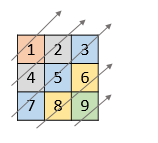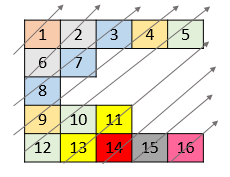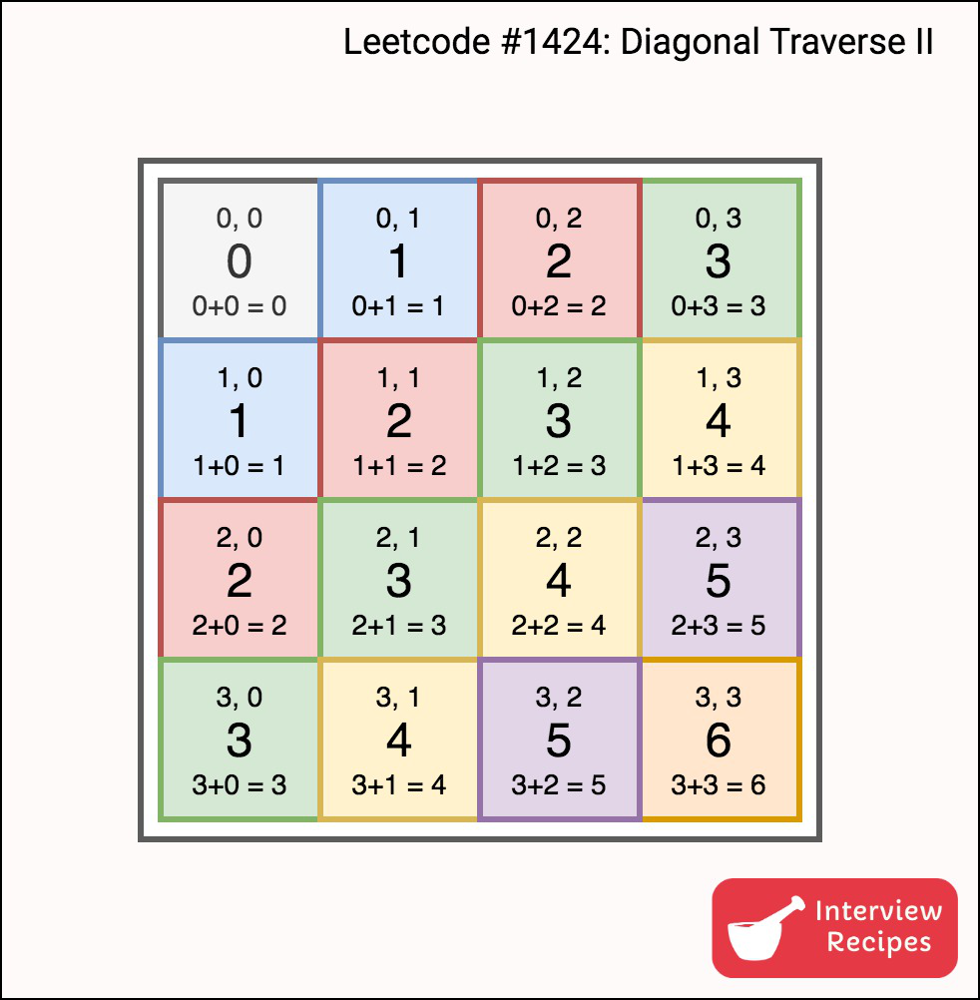| ID | Title | Difficulty | |
|---|---|---|---|
| Loading... | |||
1424. Diagonal Traverse II
Medium
LeetCode
Array, Sorting,Heap (Priority Queue)
Problem
Given a 2D integer array nums, return all elements of nums in diagonal order as shown in the below images.
Example 1:

Input: nums = [[1,2,3],[4,5,6],[7,8,9]]
Output: [1,4,2,7,5,3,8,6,9]
Example 2:

Input: nums = [[1,2,3,4,5],[6,7],[8],[9,10,11],[12,13,14,15,16]]
Output: [1,6,2,8,7,3,9,4,12,10,5,13,11,14,15,16]
Constraints:
1 <= nums.length <= 1051 <= nums[i].length <= 1051 <= sum(nums[i].length) <= 1051 <= nums[i][j] <= 105
Code

class Solution {
public int[] findDiagonalOrder(List<List<Integer>> nums) {
int count = 0, maxKey = 0;
Map<Integer, List<Integer>> map = new HashMap<>();
for (int row = nums.size() - 1; row >= 0; row--) {
for (int col = 0; col < nums.get(row).size(); col++) {
int key = row + col;
if (!map.containsKey(key)) {
map.put(key, new ArrayList<>());
}
map.get(key).add(nums.get(row).get(col));
maxKey = Math.max(maxKey, row + col);
count++;
}
}
int[] ans = new int[count];
int index = 0;
for (int key = 0; key <= maxKey; key++) {
if (!map.containsKey(key))
continue;
for (int v : map.get(key))
ans[index++] = v;
}
return ans;
}
}
按 <- 键看上一题!
1421. NPV Queries
按 -> 键看下一题!
1435. Create a Session Bar Chart


